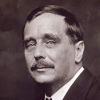“ Certainly all human beings are incapable of continuous activity. ”
Aristotle, Nicomachean Ethics (c. 334 BC - 330 BC). copy citation
| Author | Aristotle |
|---|---|
| Source | Nicomachean Ethics |
| Topic | activity |
| Date | c. 334 BC - 330 BC |
| Language | English |
| Reference | |
| Note | Translated by W. D. Ross |
| Weblink | http://classics.mit.edu/Aristotle/nicomachaen.mb.txt |
Context
“for when both the passive and the active factor are unchanged and are related to each other in the same way, the same result naturally follows.
How, then, is it that no one is continuously pleased? Is it that we grow weary? Certainly all human beings are incapable of continuous activity. Therefore pleasure also is not continuous; for it accompanies activity. Some things delight us when they are new, but later do so less, for the same reason; for at first the mind is in a state of stimulation and intensely active about them, as people are with respect to their vision when they look hard at a thing, but afterwards our activity is not of this kind, but has grown relaxed;”
source


